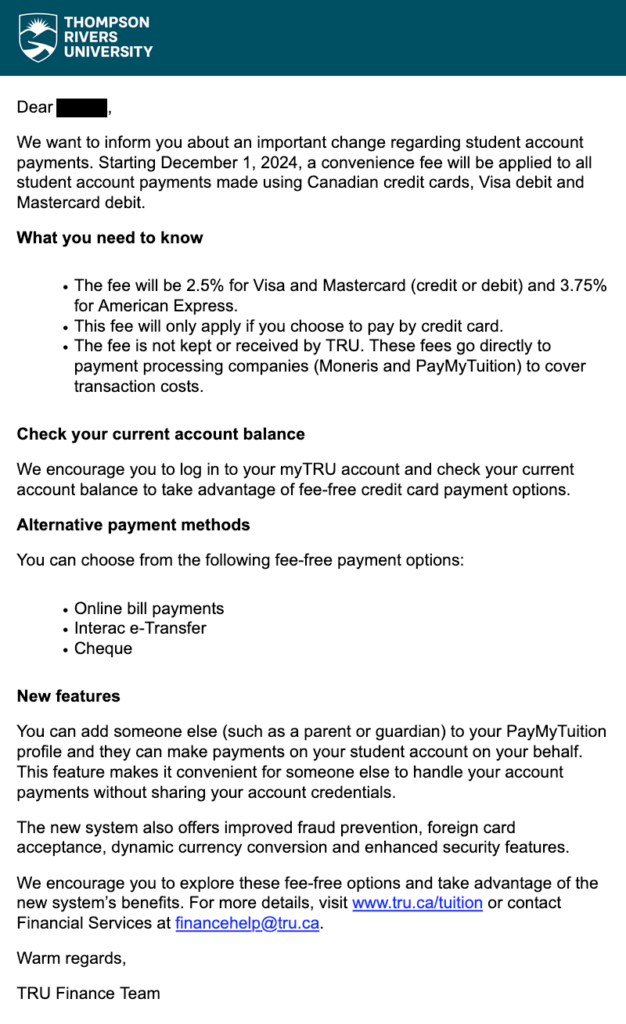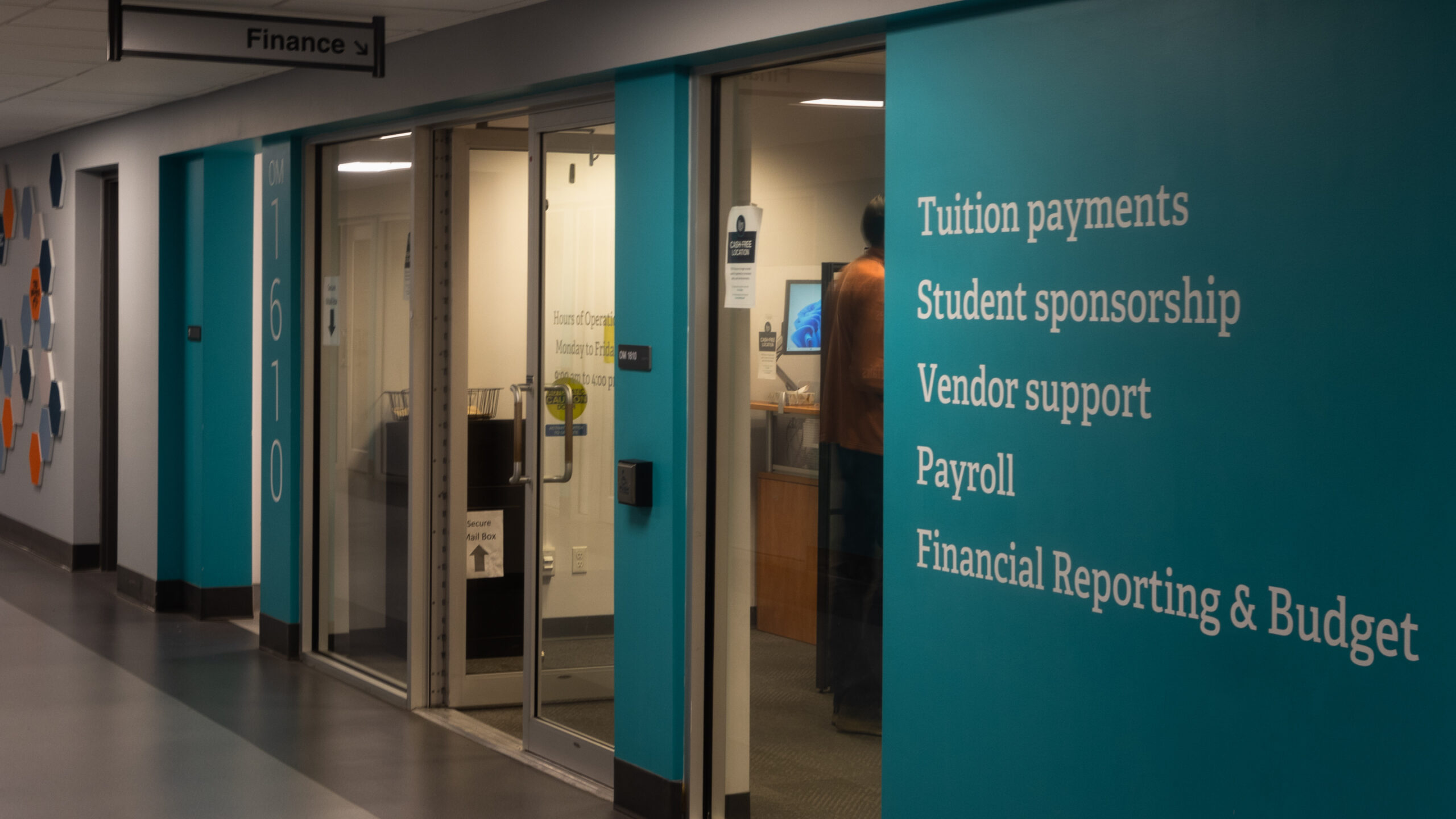Thompson Rivers University students are voicing concerns following a campus-wide email about new tuition fees sent by the university’s finance department on Oct. 15.
Beginning Dec. 1, students paying tuition with credit cards will be charged a new “convenience fee” of 2.5 per cent for Visa and Mastercard transactions and 3.75 per cent for American Express. In the email, TRU advised students to use Interac e-transfer, bank transfers or cheques as alternative payment methods as they do not accept cash, but it did not otherwise explain the fees at the time of the notice.

Robert McAlaster/The Omega
“The new fees … are being introduced to help cover the rising costs associated with credit card processing,” TRU wrote in a statement in response to media inquiries. The university said although the processing fees have always existed, they simply absorbed them into their costs in the past.
“By transitioning the fees to credit card users directly, we are able to keep tuition costs stable and allocate more resources to student services and programs,” the statement read.
Loshima Shongo, a student representative for TRU’s Students’ Union (TRUSU) said they were not consulted prior to the email from the university.
“We were shocked when we received the news,” Shongo said. “We are not in support of it because we believe that students don’t deserve to be charged to pay more because they’re using a different card.”
TRU said although they did not consult the union, they wanted to note this decision does not affect all students, just those who pay with credit cards.
Shongo explained she is worried about how increased costs will affect international students like herself, who typically already pay more than double the rate of domestic students’ tuition.
“We are already paying too much. We’re already going through a lot to be students here and them having to charge us is like them looking for another path to get more money from students,” Shongo said.
International student Rayhan Sharif, who worked full-time during the summer to pay his fall tuition off in increments, said he was often completely out of money while between bi-weekly pay cheques.
“Without a credit card’s help it would’ve been impossible for me to pay the tuition fees before the deadline,” Sharif said.
While Sharif called the new fees “totally absurd,” Diego Machado, a domestic student, said “confusion” was his initial reaction upon opening the email. Machado is in his final year of study and said paying his tuition each semester with a credit card lets him collect reward points on his card.
“It helps me save a little bit of money because I can use my points to pay off my credit card balance. It is nice to be able to get a little bit of extra benefit out of something that is so innately required within the system,” Machado said.
Although Machado said he would likely “bite the bullet” and pay his final semester dues with his credit card and he’s not opposed to increased fees in general, but he wanted a clearer initial explanation from TRU.
“I wish the university did a better job of being transparent and communicative about why these sort of changes are being made and where the decisions are actually coming from for them,” Machado said.
The convenience fee on credit card tuition payments at TRU will come into effect on Dec. 1.

